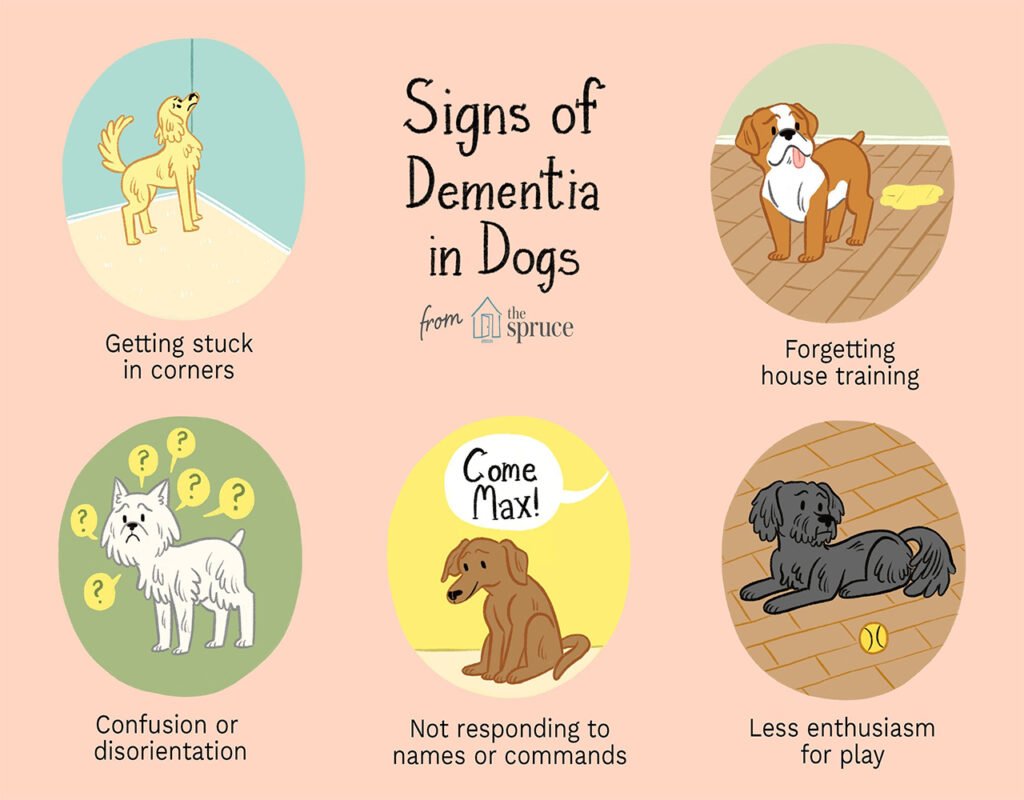Dementia in senior dogs is a common problem that occurs in older dogs just as it does in aging humans. Similar to Alzheimer’s in humans, dementia in dogs is a degenerative brain disease that causes altered behavior and memory loss.1
We help our senior dogs age gracefully. VCA Animal Hospital.
These progressive changes affect the quality of life of both dogs and their owners. There is no cure for dementia, but owners may be able to mitigate the negative effects and help their dogs live happily just a little longer.
What to do when your cat farts?
What is dementia in senior dogs?
Dementia in senior dogs, officially known as canine cognitive dysfunction syndrome (CDS), is a collection of symptoms that result from progressive brain degeneration that causes changes in a dog’s mood, behavior, and memory.
The University of California, Davis Behavior Clinic states that 28% of dogs show signs of dementia by the time they are 11 to 12 years old, and that this likelihood increases to 68% of dogs by the time they reach 15 or 16 years old.2

Symptoms of Dementia in Older Dogs
Dementia negatively impacts the daily routine of an older dog and often occurs in varying degrees as dogs get older. Some symptoms may appear as the dog ages and gradually worsen, or they may appear more suddenly and be more drastic. Irregular sleep patterns, repetitive behaviors such as licking and pacing, decreased appetite, and lack of desire to interact with other pets or their owners can be signs of dementia in older dogs. These behaviors can put a strain on the relationship between owners and their dogs.
The most common signs of dementia in older dogs can be stored with the commonly used acronym DISHA: disorientation, interaction changes, sleep changes, soiling the house, and changes in activity level.
Loss of house training
One of the biggest concerns of dog owners is loss of house training. When some dogs develop senile dementia, they become confused and begin to urinate or defecate in the house. This frustrates the owner, who in turn may become upset with their pet. This affects the human-animal bond and ultimately the quality of life of both pet and owner.
Disorientation
Other signs of confusion due to senile dementia include disorientation in the house, staring at walls, and walking to the hinge side of a door even though the dog has known for years which side of the door opens to go through. Senile dementia can cause a dog who has known his home environment all his life to suddenly become lost in rooms or corners of his house.
Vocalizations for no reason
Vocalizations, including barking, whining, and crying for no apparent reason, are also common in dogs with senile dementia. This can be a sign of stress, fear, or anxiety due to confusion; they may also show aggression.
Aggressive behavior
Aggressive behavior may be more common in dogs with dementia because their tolerance and patience threshold is lower. Normally patient and willing dogs may suddenly growl or bite familiar people and pets.

What causes dementia in dogs as they age?
No one fully understands the complex causes of dementia in dogs or people. The symptoms of dementia are the result of changes or damage in the brain, but different manifestations of dementia can arise from different brain problems.
Sometimes certain proteins in the brain build up around neurons and cause cognitive decline. Neuron deterioration is another age-related factor that disrupts normal information transmission in the brain.
How do vets diagnose dementia in older dogs?
Your vet will rule out other medical problems such as tumors or diseases before diagnosing your dog’s dementia.3 Sometimes a questionnaire is used to identify behavioral signs that are common with this condition, so your careful attention to signs of dementia is critical to making a diagnosis.
The Quality of Life Scale, or HHHHHMM scale, is often used to help owners determine whether or not their dog has changed as they age. This scale goes through the signs of dementia and includes a review of the dog’s behavior. The HHHHHMM scale assesses pain, hunger, hydration, hygiene, happiness, mobility, and more good days than bad.
This scale helps an owner decide whether or not a pet’s quality of life is still good as dementia progresses, and can also help an owner decide when euthanasia should be considered.
Treatment and Prevention
Unfortunately, there is no way to reverse the signs of dementia in dogs, but there are some supplements that can be given to potentially delay brain changes as a dog ages.3 Antioxidants, omega-3 fatty acids, vitamin E, and medium-chain triglycerides (MCTs) are the main dietary components often discussed in relation to brain health.
Other supplements used to support brain health and treat dementia symptoms include SAMe, denamarin, silybin, and cholidine.4
Some experts recommend supplementing dogs’ diets before they show signs of senile dementia, but there is little evidence that this works as a fully preventative measure. If you are concerned that your older dog may develop CDS, talk to your veterinarian about possible preventative supplements.
Prognosis for Dogs with Senile Dementia
Dementia is a progressive disease that can, at best, be stabilized for a period of time. No matter how supportive owners are or how diligently they give them brain-healthy supplements, the aging process will continue to damage their dogs’ brains. When dementia becomes severe and negatively impacts quality of life, most owners must make the difficult decision to euthanize their dogs.

